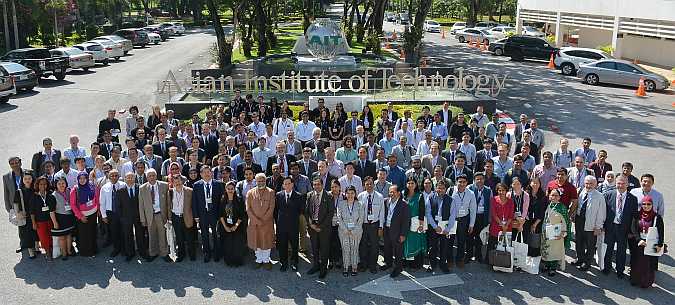Elaborating on how he had helped create 11,800 water bodies in India
without the help of any governmental organization or corporates,
Rajendra Singh gave credit for these initiatives to the local
community. “Experts do not respect the community,” he lamented, adding
that scientists concentrate on calculations rather than focusing on
communities. “Calculation-based research conducted by scientists and
educational institutes does not involve the community and ignores
nature,” he regretted. Modern development is creating disruptions,
which is leading to disasters, he added.
The Magsaysay-award winner illustrated how the initiative of water
harvesting had metamorphosed the local climate in many regions of
desert areas in Indian province of Rajasthan. He quoted the example of
a transformation of areas plagued by degraded rivers to fertile lands.
He urged scientists to return to basics and display love and affection
with nature. “Conservation and discipline are the two arms that have to
work together,” Rajendra Singh said as he spoke about the success of
his schema of water parliaments.
The three-day conference being organized at AIT got off to a start on
28 November 2016 with the AIT President Prof. Worsak Kanok-Nukulchai
welcoming the participants. Keynote speeches will be delivered by Prof.
Robert Costanza of Australian National University (ANU); Dr. Bindu
Lohani, former Vice President, Asian Development Bank (ADB); Dr.
Norbert Dichtl of the Institute of Sanitary and Environmental
Engineering; and Prof. Janos J Bogardi of University of Bonn, Germany.
Prof. Mukand Singh Babel of AIT, who is spearheading the Conference on
behalf of the Institute, outlined the program details adding that one
of the outcomes of the event would be a special journal and a book. The
Conference seeks to emerge as a platform for engaging leading experts
in discussions on water security issues in Asia in order to facilitate
the path towards water-secure societies. The event is organized by
exceed centers CNRD (Cologne) and SWINDON (Braunschweig) along with
AIT, and supported by Germany Academic Exchange Service (DAAD).


